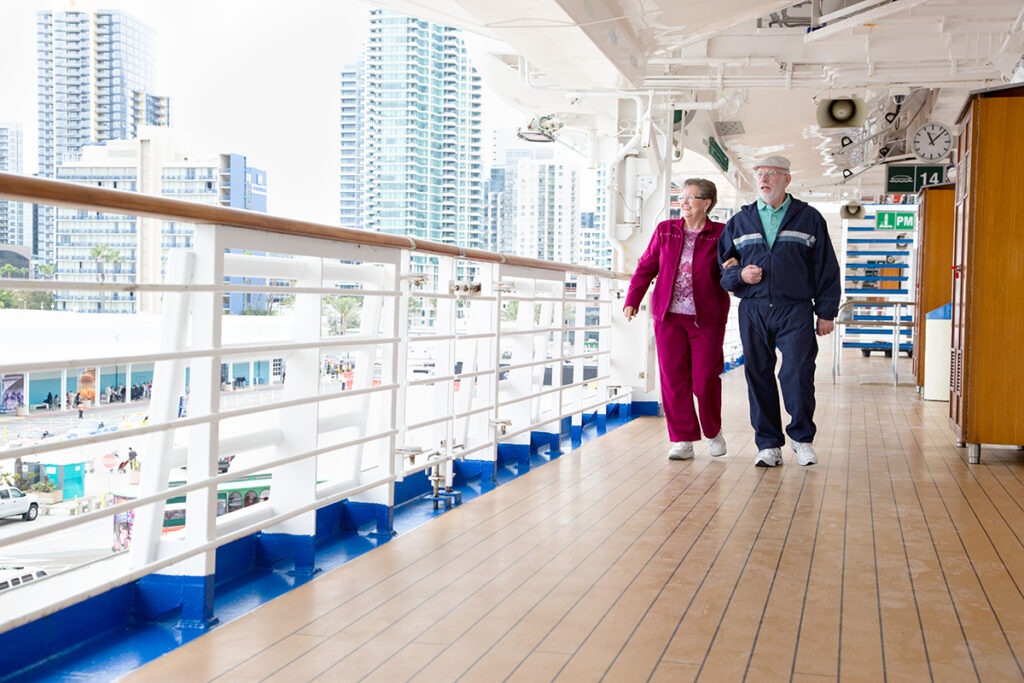From slipping on wet decks to overboard accidents, both passengers and the ship crew face real risks when traveling on cruise ships. Understanding these dangers can help you stay alert and be better prepared during your trip.
This article covers common cruise ship accidents and how a New Orleans personal injury lawyer can help you seek compensation.
Key Takeaways
- Cruise ship accidents can lead to serious injuries for passengers and crew members.
- Common incidents include slip and falls, onboard assault cases, and medical negligence.
- Victims may face long-term physical, emotional, and financial challenges when they experience accidents on a cruise ship.
- Getting legal guidance from Cardone Law Firm can help you protect your rights and pursue whatever compensation you may be owed.
Common Cruise Ship Accidents
Many cruise ship accidents are caused by negligence, carelessness from crew members, or unsafe conditions that could have been avoided with proper safety measures. Some of the most common types of cruise accidents include:
- Slip and Fall Accidents — Wet decks near areas like the pool or dining rooms can make people slip and fall. When there are spilled drinks or waves that splash on the ship, the floors can also become slippery and dangerous.
- Sexual Assault and Assault — Sadly, some passengers or crew members may assault others on the boat. Cruise lines are responsible for protecting everyone on board, but sometimes, unfortunate incidents like assault still happen.
- Malfunctioning Tools and Equipment — Broken doors, elevators, or slides can cause accidents on a cruise ship. For example, a water slide might crack or an automatic door might close too fast and cause an injury to a passenger.
- Mechanical Problems and Engine Room Failures — Engine failures, fires, or mechanical breakdowns can create sudden chaos. These emergencies often lead to injuries because many passengers panic and act in a rush.
- Collisions and Grounding — The January 2012 Costa Concordia disaster in Italy showed the dangers of a cruise ship going off course. The ship struck a rock near shore, injuring many passengers and causing 32 deaths.
- Norovirus – Cruise lines are responsible for maintaining sanitary conditions to prevent illnesses like norovirus from spreading.
- Overboard Accidents – While rare, overboard accidents are often deadly.
- Food Contamination – Food contamination is a leading cause of cruise illnesses. Cruise lines are responsible for maintaining sanitary cooking and dining areas and proper food preparation.
- Medical Negligence – While the care they can provide may be limited, cruise line medical staff are required to provide the same standard of care as any other healthcare professional, including properly diagnosing and treating injuries and illnesses.
Common Crew and Passenger Injuries
Although some cruise ship accidents lead to minor injuries, others can cause serious medical conditions, lost wages, or even force you into long-term recovery. Some of the most common injuries caused by cruise ship accidents include:
- Cuts and bruises
- Broken bones and sprains
- Food poisoning, vomiting, and diarrhea
- Burns, scalds, and severe sunburn
- Back pain, muscle strain, and repetitive stress injuries
- Traumatic head injuries
- Crushing injuries
- Life-changing harm from rare severe accidents
- Spinal cord injuries
- Amputation
- Internal bleeding
- Respiratory issues
- Hearing loss
- Drowning
- Electrocution
Taking Legal Action for Cruise Line Negligence
Under maritime law, cruise lines are liable for injuries caused to passengers and crew due to negligence and wrongdoing. Here are a few steps injured parties can follow to take legal action and fight for whatever compensation they may be owed:
- Get Medical Attention – Whether your injury seems small or large, it’s important you see a doctor immediately. A medical examination from a licensed medical professional helps you understand the extent of your injury and provides the proof you'll need later.
- File a Report – Next, file a report with the cruise ship authorities. This report contains details of the accident and the circumstances that led to the incident. You can collect a physical copy of the report or take a photo for your own records.
- Get the Evidence You Need – You can take additional videos, pictures, and recordings of the incident. You can also document reports from witnesses and collect their contact information. If you are injured and unable to gather this evidence yourself, ask for help.
- Get Legal Representation – Because many cruise lines have strong legal teams, they can fight hard to avoid paying out claims to victims. You need a New Orleans cruise ship accident attorney who can fight for your rights and provide the legal support you need during this period.
Talk to the Cruise Ship Accident Lawyers at Cardone Law Firm Today
Cruise lines have a duty to maintain safe conditions for both passengers and crew, and when they fail, the consequences can be life-changing. If you or someone you love has been injured because of a cruise ship accident, you may be entitled to some form of compensation. You may be owed relief for medical expenses, lost wages, and other damages.
The team at Cardone Law Firm is here to help victims of cruise ship negligence pursue justice. Our experienced New Orleans personal injury lawyer can provide you with the right guidance on how to manage cruise injuries, fight for your rights, and work toward whatever compensation you may deserve.
Count on Cardone Law Firm for legal guidance and support when cruise ship accidents put you at risk.




